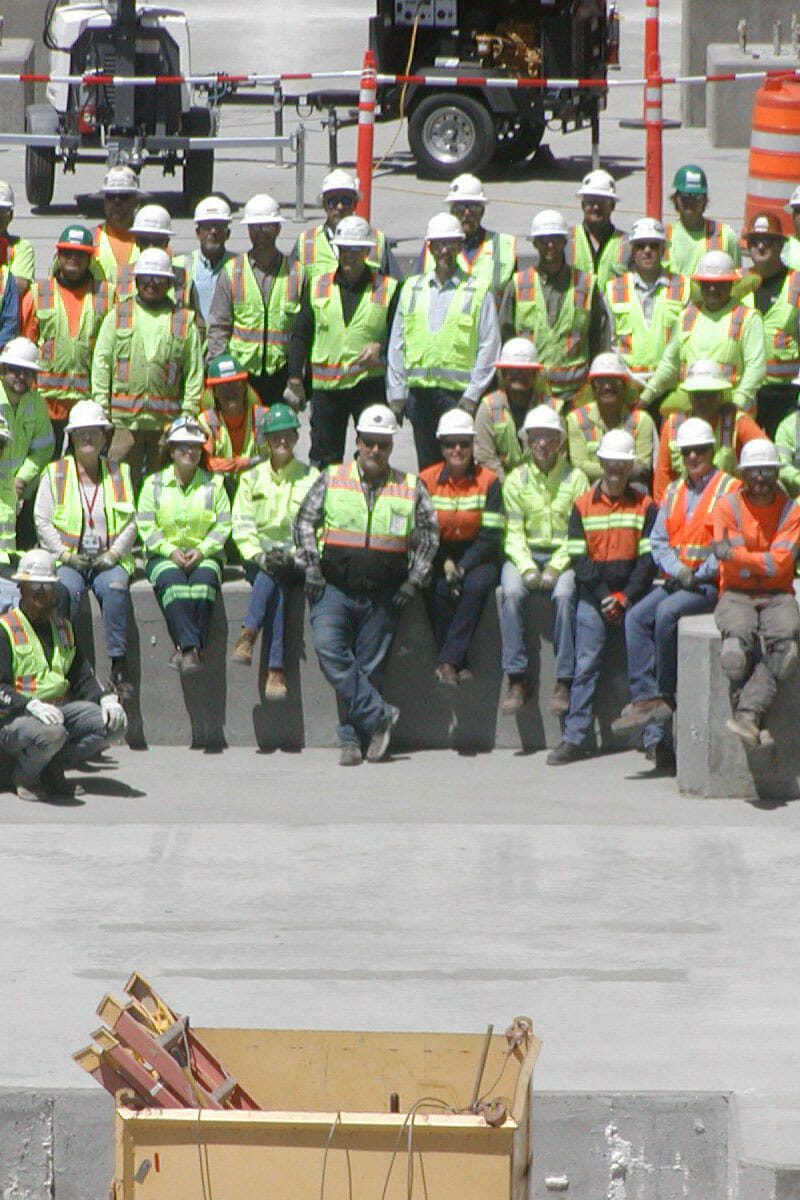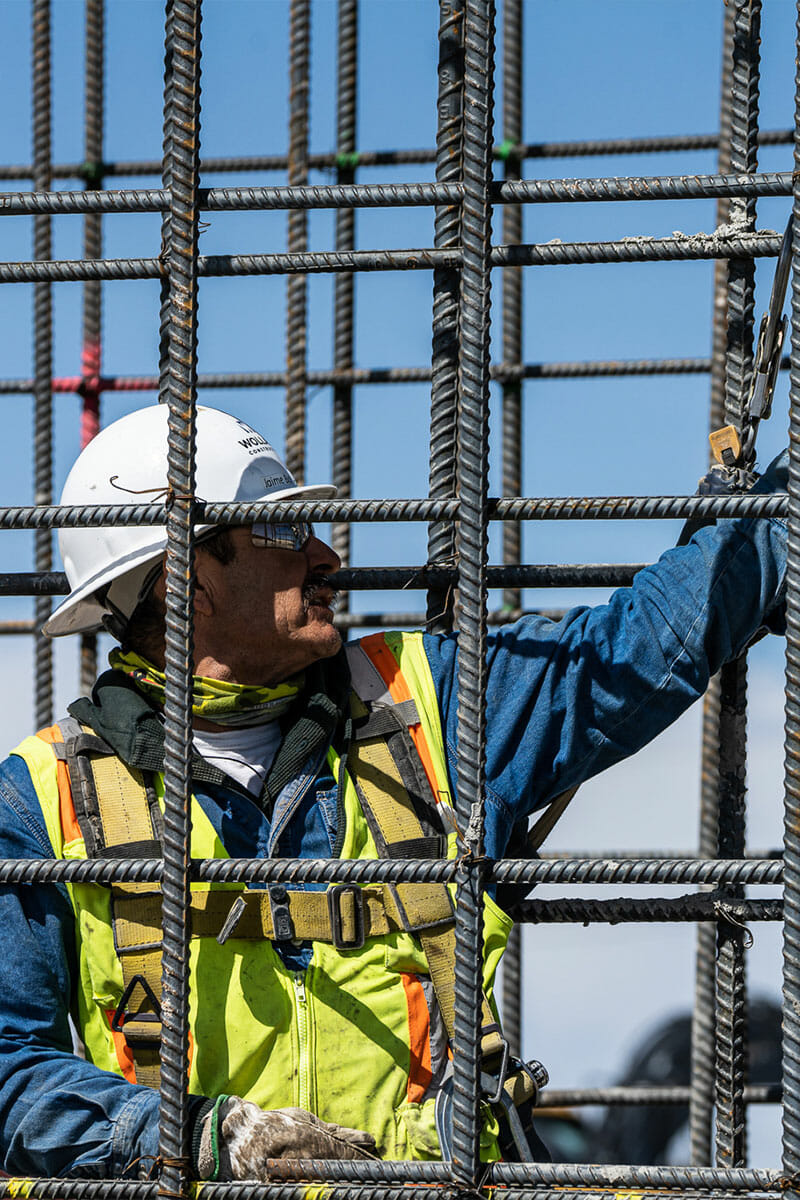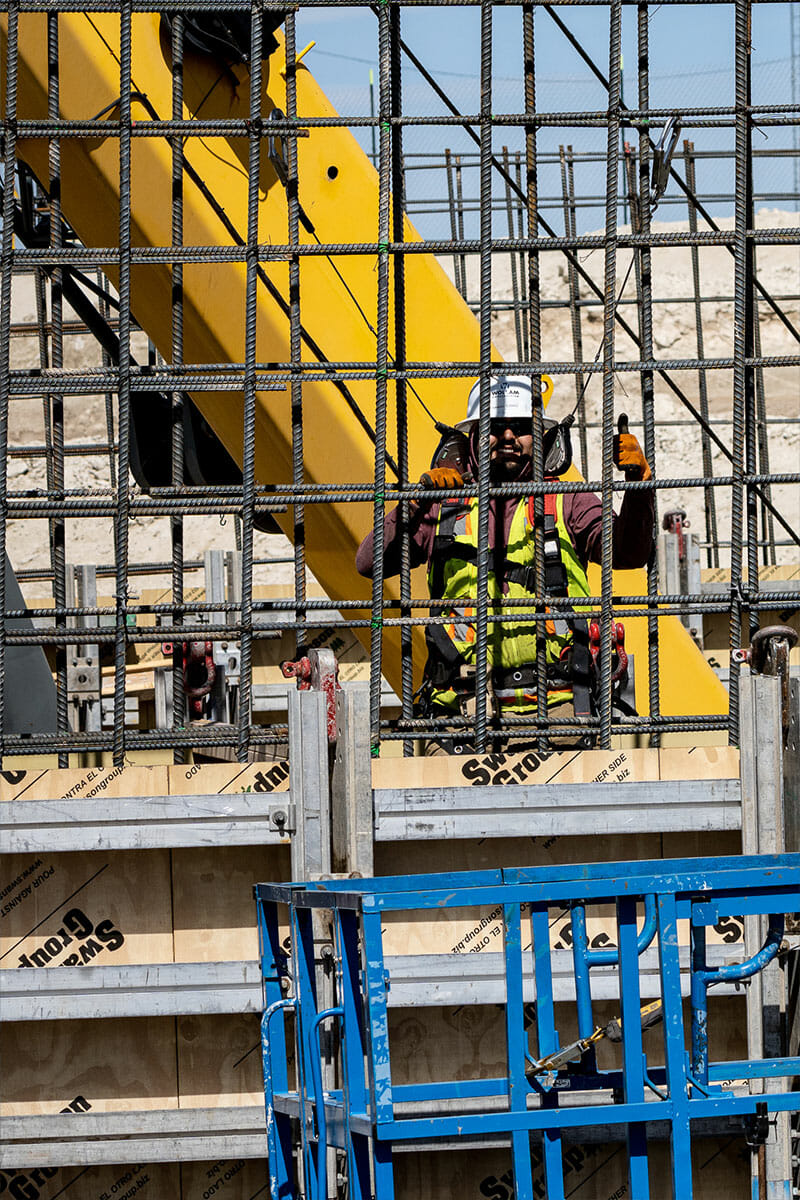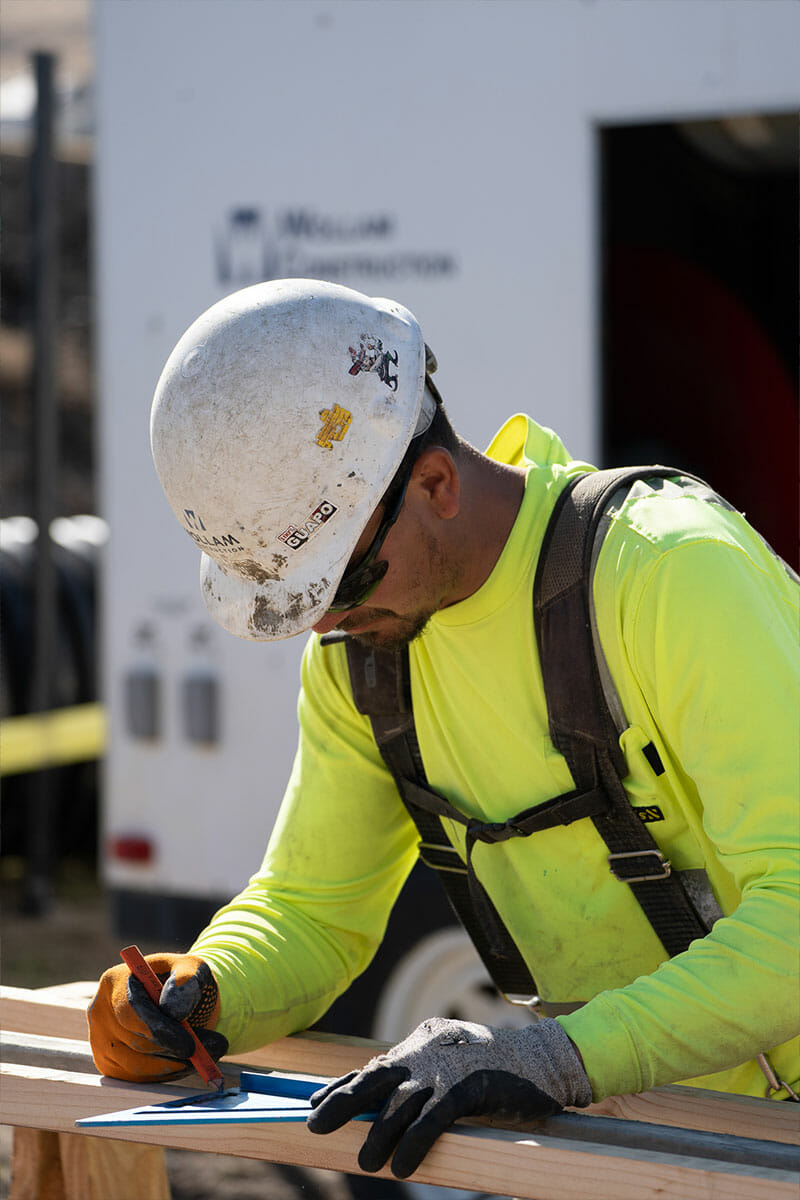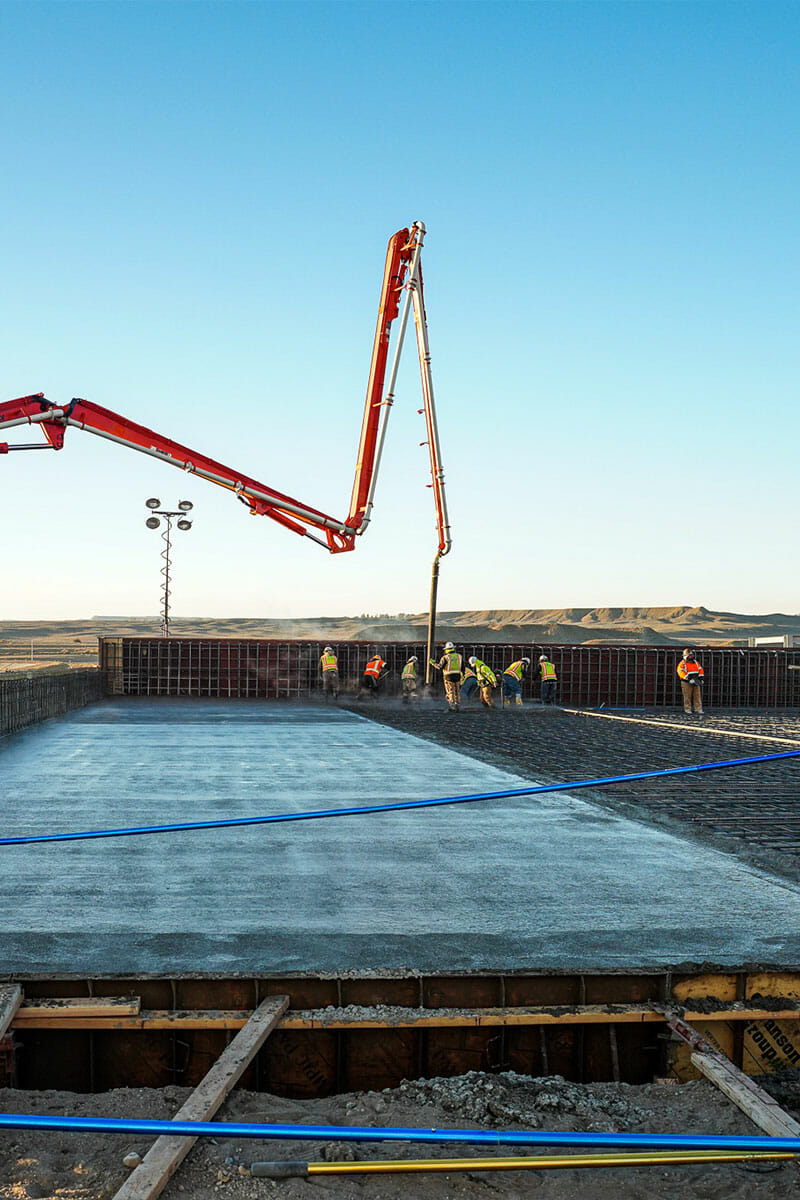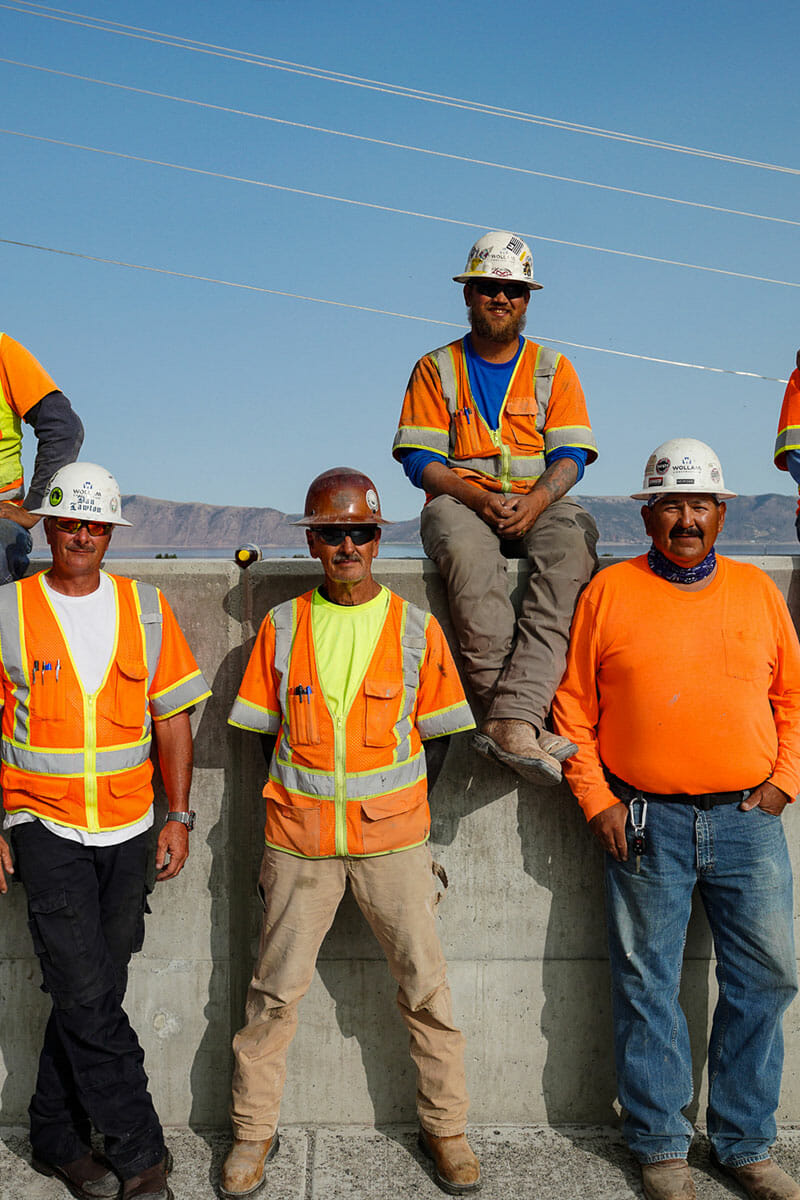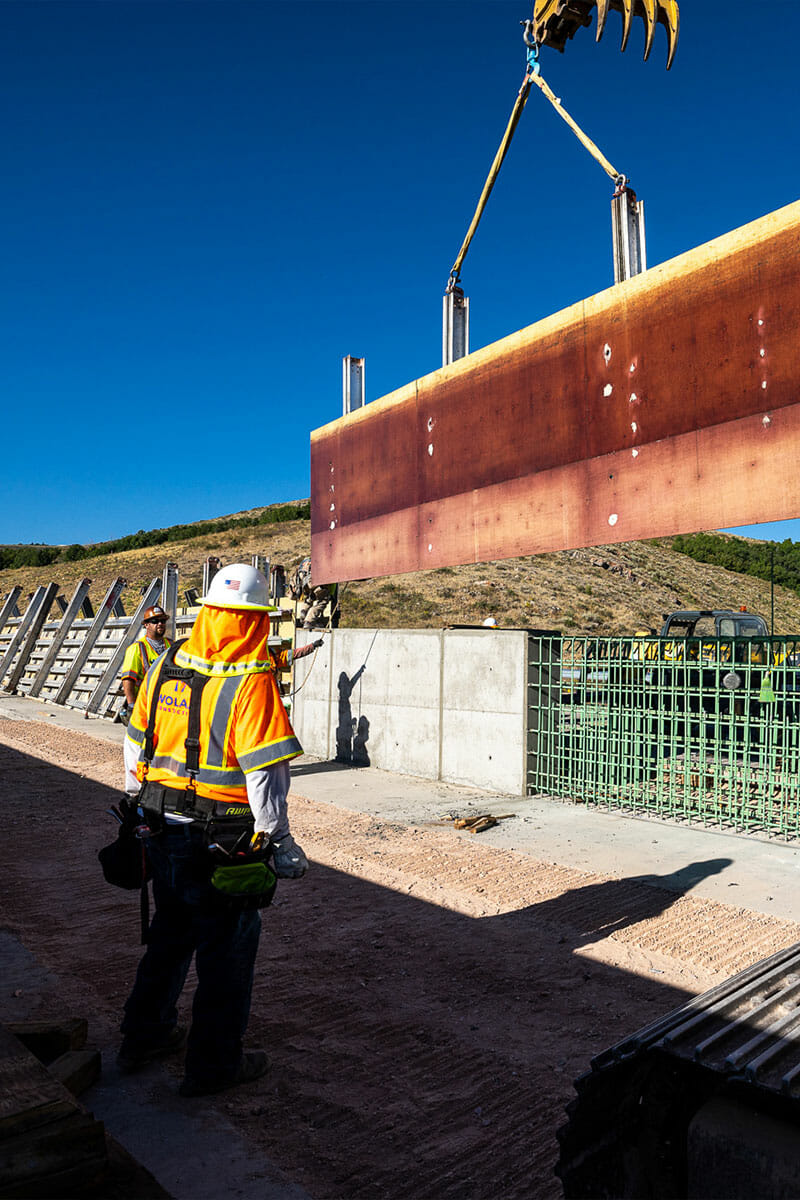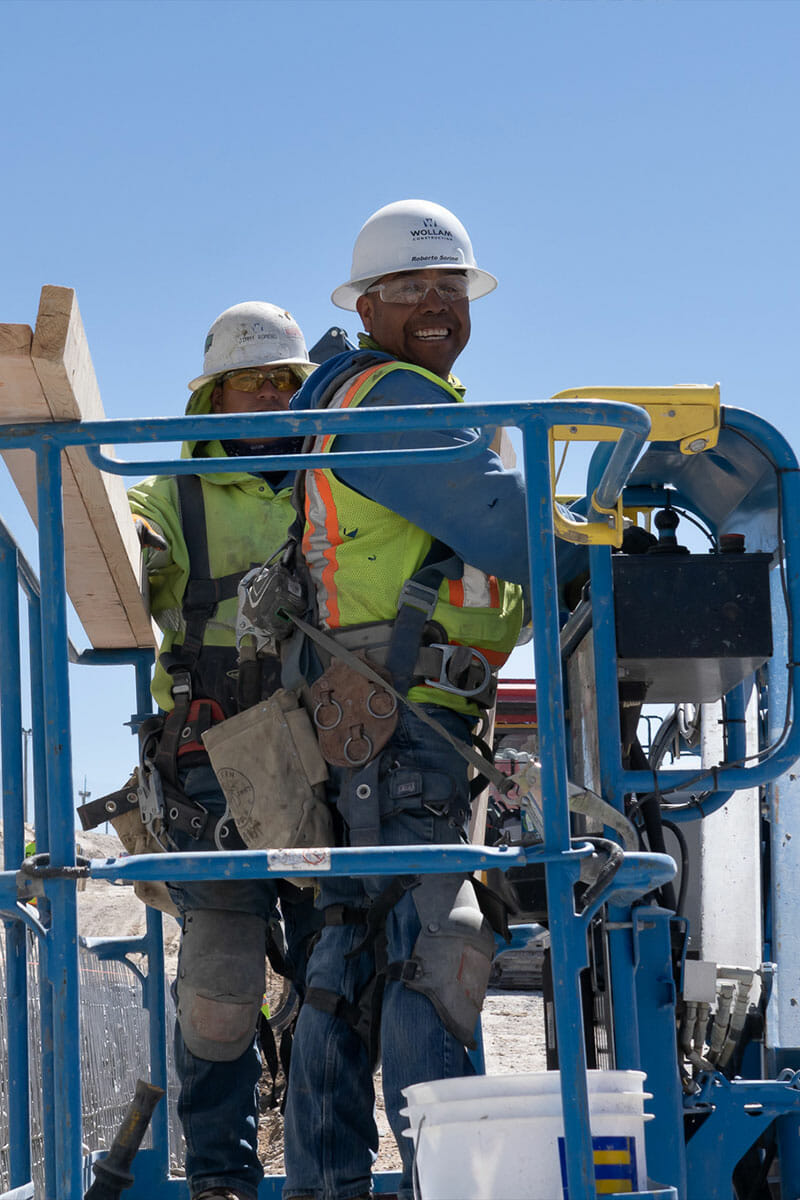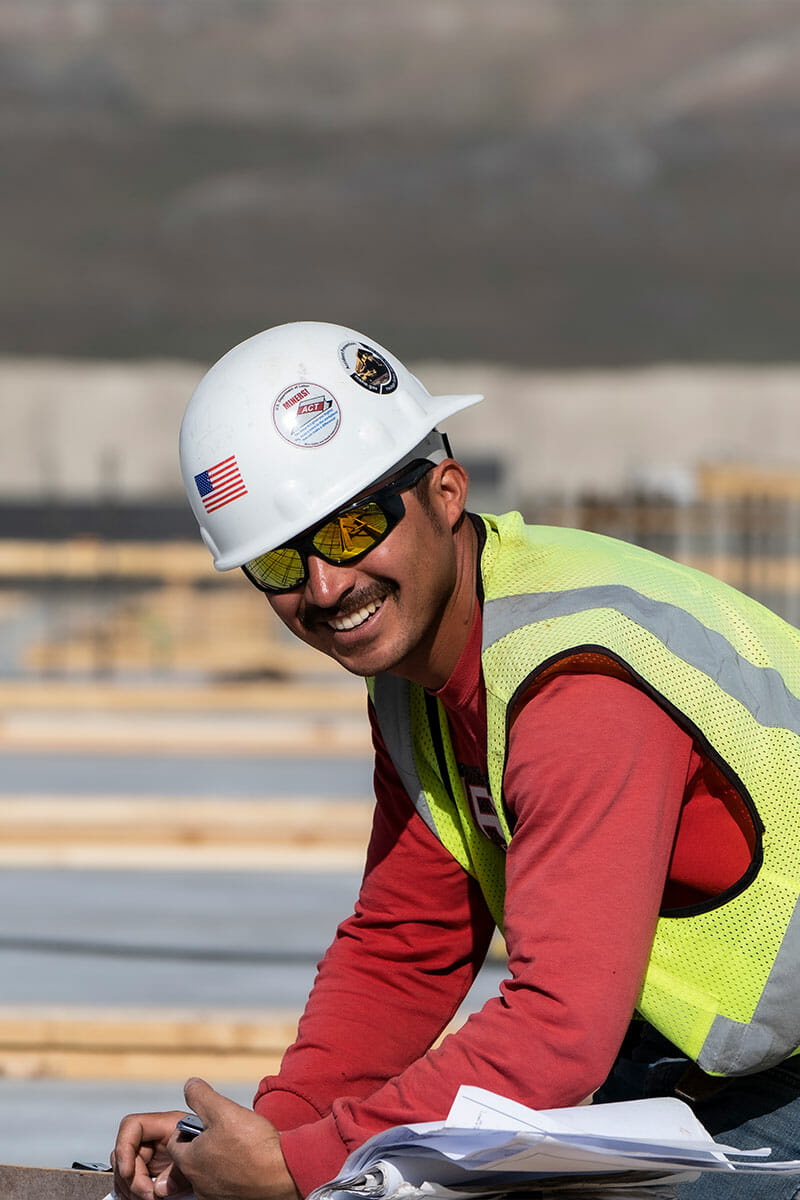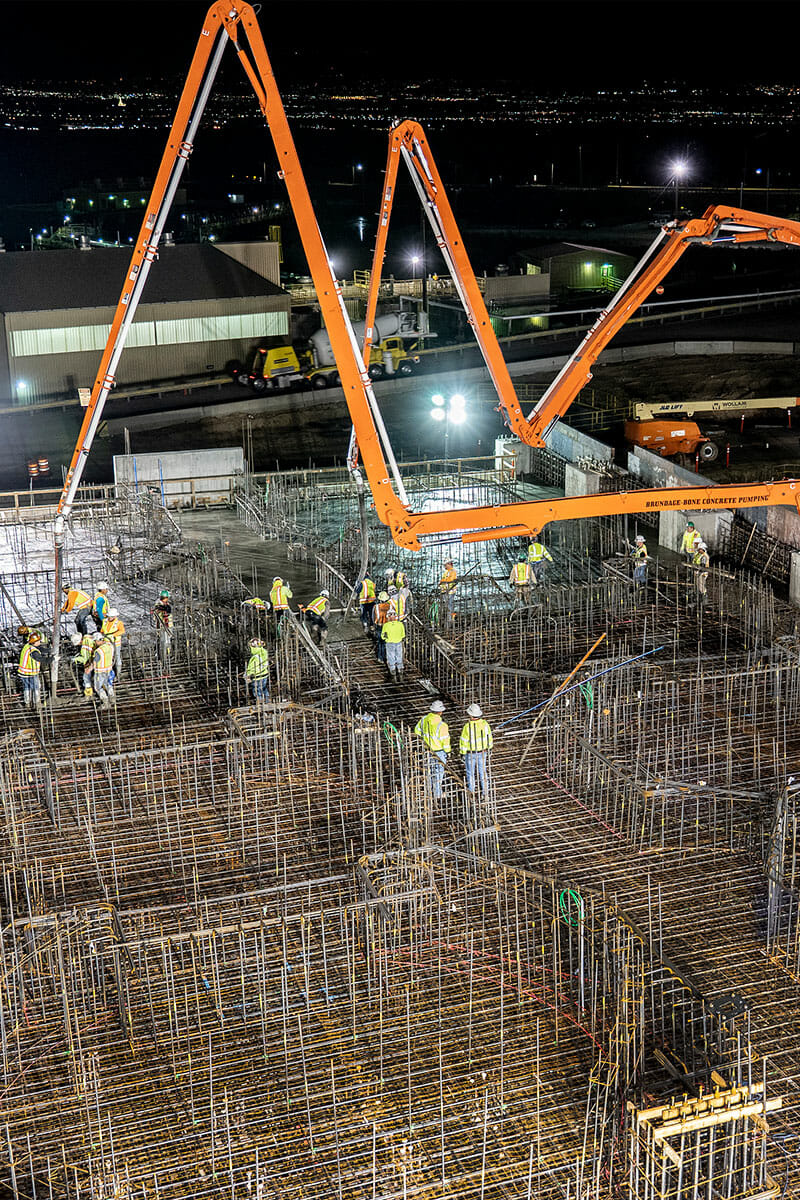We’re seeking ambitious, hard-working concrete supervisors, carpenters, finishers, and laborers to join the Wollam Construction team in Draper, UT. You can be a part of one of the fastest-growing construction teams in Utah, completing some of the most significant industrial and infrastructure construction projects in the Intermountain West.
Concrete Construction Jobs:
Concrete Construction Supervisors
Concrete Carpenters
Concrete Finishers
Concrete Construction Laborers
Job Requirements
- Frequent lift, carry, push, pull up to 50 lbs of material, and equipment
- Frequent walking, stooping, kneeling, reaching, and climbing
- Frequent use of power & hand tools
- Concrete construction work experience preferred
- Concrete form setting experience preferred
Job Responsibilities
- Individuals must be aware of their surroundings, have good balance, and physical strength
- General construction: job site clean-up and moving materials by hand
- Operating hand and power equipment including, saws, hammers, pliers, etc.
- Assist in setting and assembling concrete forms
- Assist in pouring of vertical and flat concrete construction
- Construct and strip concrete framework
Employee Benefits
- Health Insurance
- Dental Insurance
- Profit Sharing (once eligible)
- 401K & Match (once eligible)
- Year-end performance bonus
- Paid Holidays
- Competitive Pay
Apply Online
What are some concrete jobs and their responsibilities?
Learn more about our Utah concrete jobs below.
Concrete Foreman or Supervisor
What does a concrete foreman do?
A concrete foreman is a construction site manager who ensures that all concrete projects are completed safely and on time. They are also responsible for overseeing the quality of the work and making sure the project complies with industry regulations. Overseeing the crew, training new hires, managing equipment, reading project plans, blueprints, and survey stakes, and making sound decisions throughout the project are just some of the ways a concrete foreman guarantees the smooth and timely progression of our industrial concrete projects.
Foremen must prioritize safety, value productivity, and be punctual, motivated, and honest to set the tone for the entire crew. Several years of experience in the concrete trade, a skill for managing teams, and a positive attitude are what we are looking for.
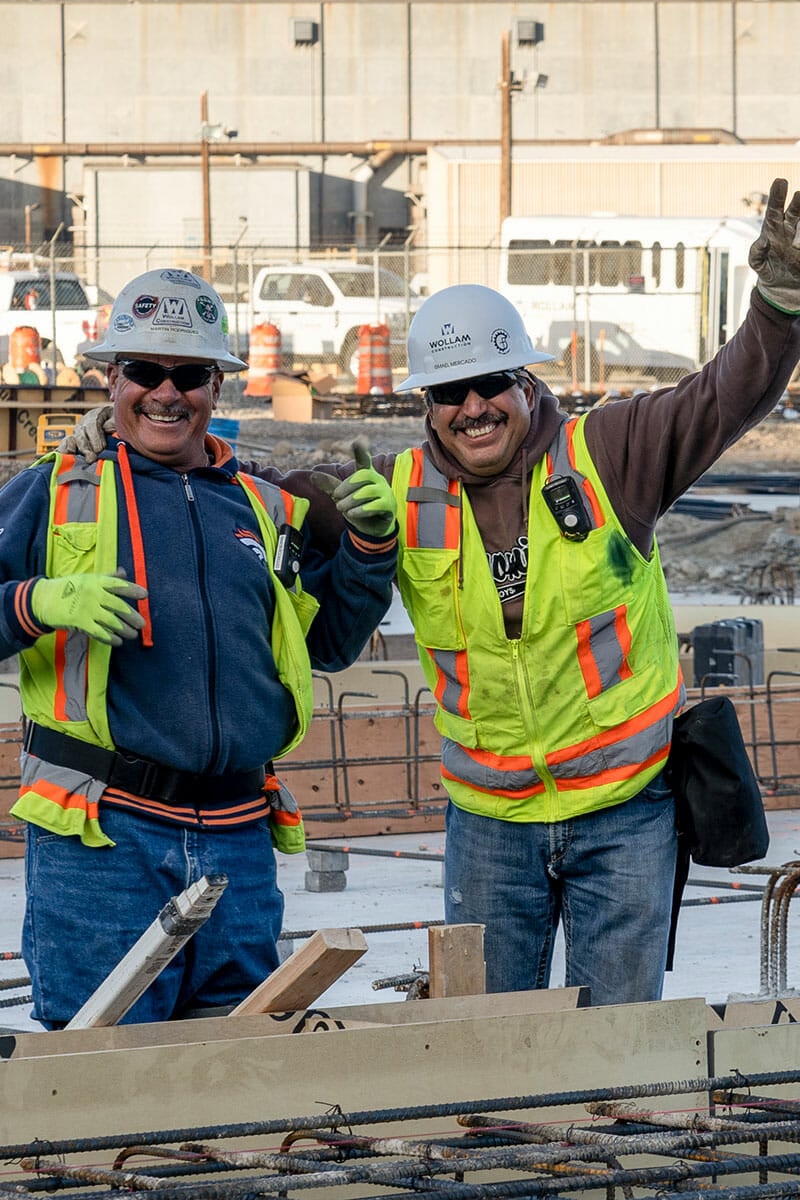
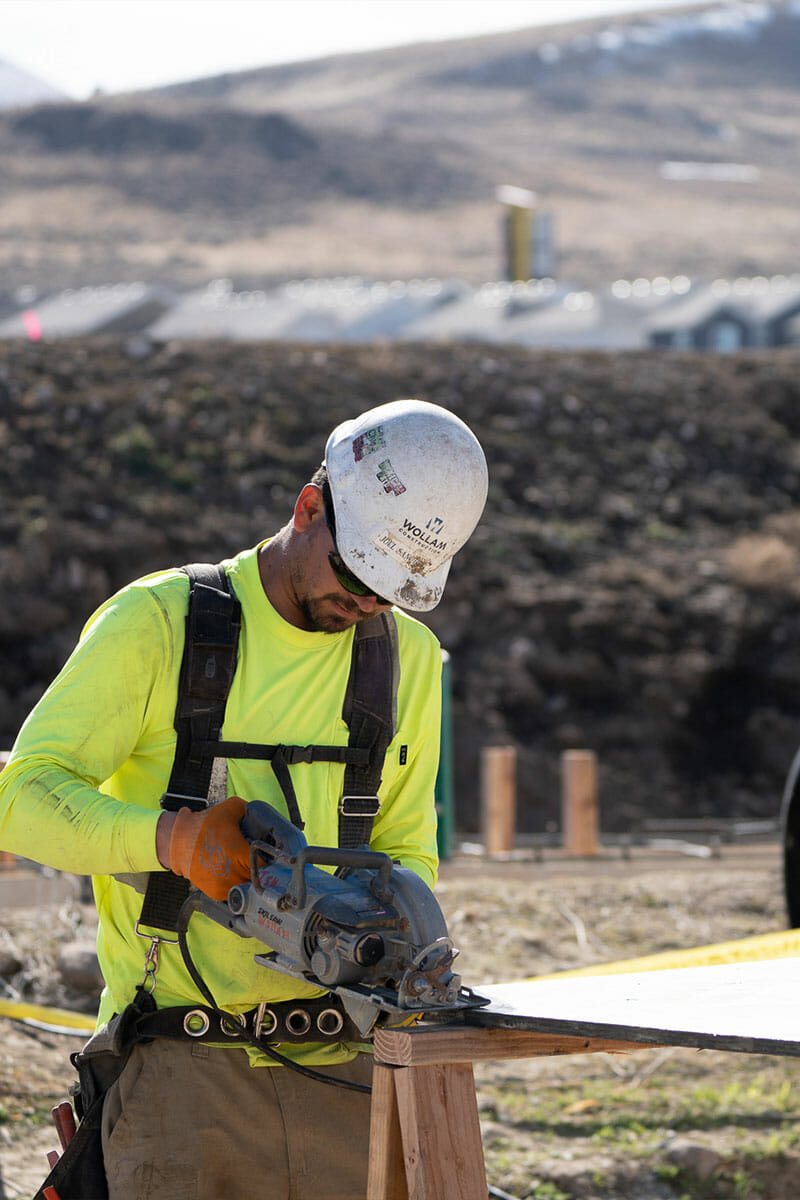
Concrete Carpenter
A concrete carpenter builds, installs, and repairs concrete formwork, using carpenter’s hand tools and power tools.
Concrete carpenters are tasked with the important job of creating the right form for the concrete to be poured into. From foundations to large industrial concrete culverts, tunnels, pits, and floors, they must build formed structures to match the specs laid out by sketches, blueprints, or other instructions. This requires varying skills in both lumber and concrete.
Like concrete laborers, concrete carpenters must have the physical strength to carry heavy loads (50 lbs or more) of materials and equipment. They must also be able to pour and screed concrete to grade; build scaffolding; form slabs, columns, and walls for concrete pours; layout footings; anchor and brace forms; and lift and handle built-in-place forms, among other tasks.
Woodworking and carpentry skills, along with mathematics, problem-solving, and attention to detail are must-have skills for this type of concrete work.
Concrete Laborer
What do concrete laborers do?
Concrete laborers are construction workers who have working knowledge of how to prep, lay, and finish concrete. Utah concrete jobs often require laborers to complete the following:
- Supporting concrete carpenters in building forms
- Setting up the forms
- Pouring concrete
- Laying wire mesh
- Spreading and smoothing concrete
- Molding expansion joints and edges
- Applying stains or colors
- Cleaning up after a concrete pour is complete
Are concrete laborers in demand?
Yes, according to the U.S. Bureau of Labor Statistics, the demand for concrete laborers will likely increase 11% between 2018 and 2028. In areas of high growth like Utah, Arizona, and Idaho, rapid urban development means concrete laborers are in even higher demand. For laborers looking for a steady and reliable career, concrete labor, finishing, or carpentry is a solid choice.
How do I become a concrete laborer?
Concrete laborers don’t require a formal education. Instead, it’s important to have on-the-job training under an experienced concrete worker. Usually, at least one year of “apprenticeship” is advised. In addition, having reliable transportation as well as a willingness to work overtime when needed are also necessary criteria. Finally, physical strength and a love for working with your hands will allow you to successfully and enjoyably carry out this role.
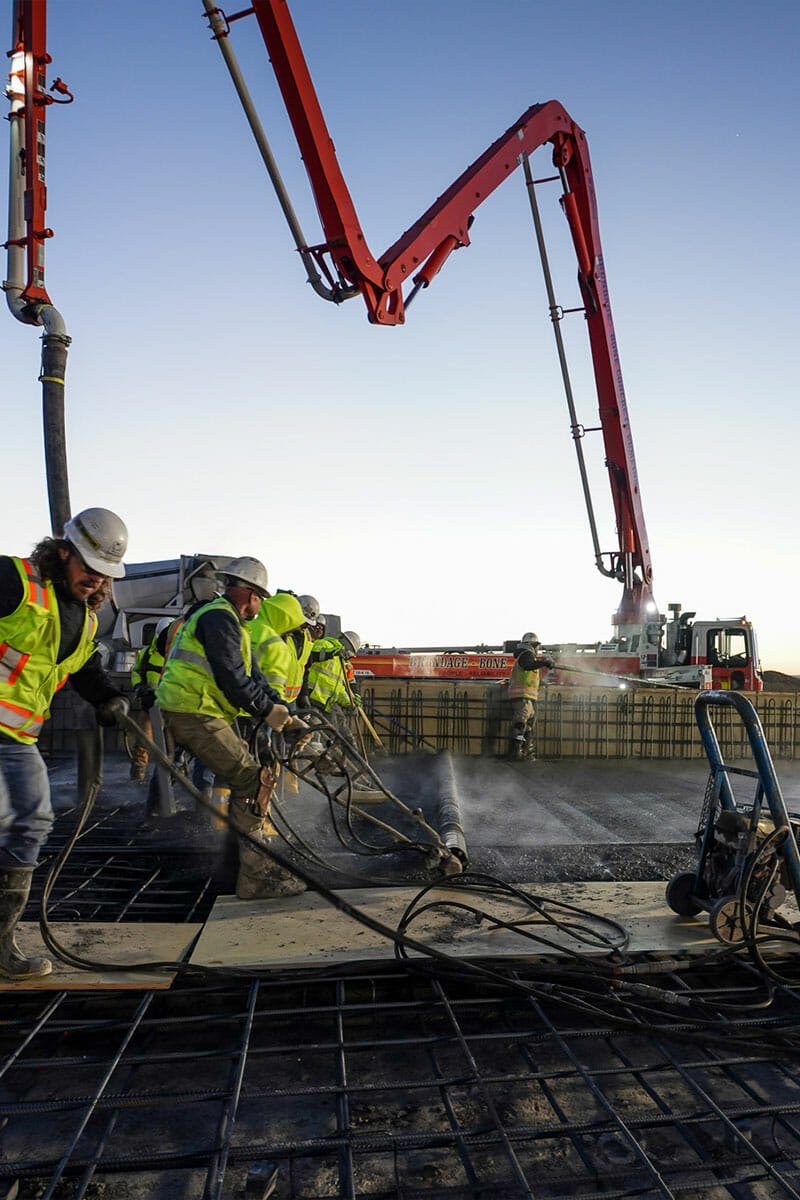
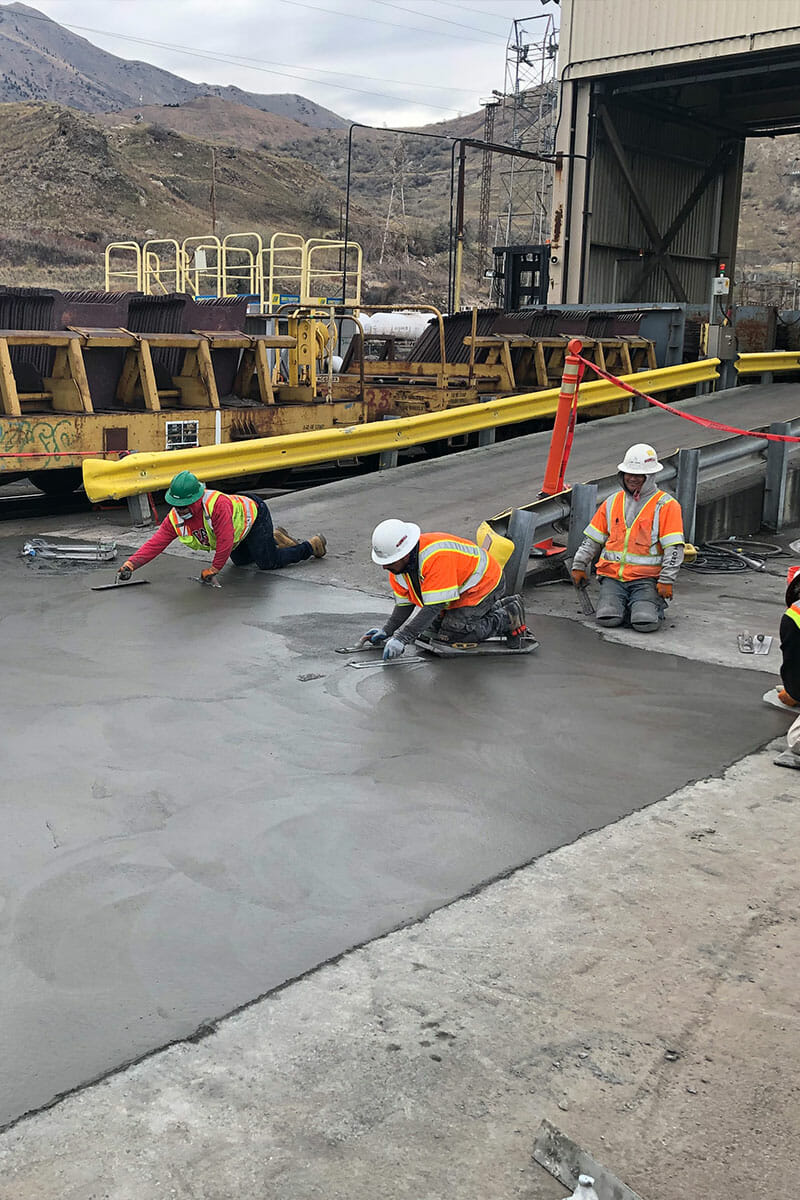
Concrete Finishers
What does a concrete finisher do on a daily basis?
Concrete finishers smooth, finish, and cure poured concrete. Special tools, including picks, shovels, post hole diggers, and pneumatic and hydraulic machines (among others) help them guarantee a finished product that matches the necessary design and specs of the project blueprint and plans.
Sometimes, concrete laborers and finishers are roles that work interchangeably, supporting both the forming and pouring stages of concrete work as well as the final finishing stage. Either way, a finisher’s attention to detail is a critical and desirable skill; concrete is important to get right the first time, as re-doing concrete work is time and labor-intensive.
How do you become a concrete finisher?
Similar to concrete laborers, finishers don’t require a formal education. Instead, it’s important to have on-the-job training under an experienced concrete finisher. The technique, tools, and skills necessary for a flawless concrete finish are learned through practice and observation. A year or more of “apprenticeship” specifically in concrete finishing can give you the experience you need to begin working as a concrete finisher.
In addition to the technical skills, having reliable transportation as well as a willingness to work overtime when needed are necessary criteria. Physical strength and stamina along with a love for working with your hands are other necessary qualifications for this construction role.
What do you call someone who lays concrete?
A concrete laborer or cement worker often pours and levels concrete, while a concrete carpenter or former builds the forms that provide the shape and structure for the concrete. Finally, concrete finishers or cement masons are skilled workers that ensure the final product is level, smooth, and straight. Any or all of these terms are commonly used in the construction industry to refer to specific or general positions involving concrete work.
Is being a concrete worker hard?
There’s no doubt that working with concrete or cement is a serious exercise; the type of work required by concrete laborers, finishers, or carpenters requires hours of manual labor, lifting and carrying of heavy materials, and time spent in the elements (in all four seasons).
While concrete jobs in Utah are demanding, they’re also uniquely satisfying. Concrete workers can see the progress of their hard work and view the impressive finished product. For those who enjoy working outside and working with their hands, concrete work is an in-demand trade that, with the right attitude, skill, and ambition, can lead to a successful career.

